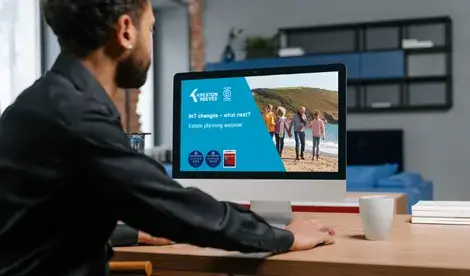George Guilherme-Fryer
- Tax Disputes and Risk Management Director
- +44 (0)330 124 1399
- Email George
Suggested:Result oneResult 2Result 3
Sorry, there are no results for this search.
Sorry, there are no results for this search.
View all peoplePublished by George Guilherme-Fryer on 6 January 2023
Share this article
HMRC’s Fraud Investigation Service (FIS) undertakes their most serious civil fraud investigations under Code of Practice 8 and 9.
Technically a CoP9 isn’t actually an investigation at all. It is in fact a request for a disclosure. HMRC will normally issue these unfortunate invitations to those it suspects have underpaid tax and acted deliberately or with fraudulent intent.
The mechanism by which you make your disclosure is via a comprehensive disclosure report through HMRC’s contractual disclosure facility (CDF).
It is worth noting that a taxpayer may ask HMRC to assess a CDF without having been approached by HMRC and sometimes during a normal enquiry, where deliberate behaviour is identified, that taxpayer may choose to enter the CDF at that point.
Code of Practice 8 is very similar to a normal HMRC enquiry; however, it is exclusively undertaken by a FIS team. These enquiries are usually limited to mass-marketed avoidance schemes or aggressive bespoke tax planning that strays a little too close to tax evasion.
The main purpose of these investigations is NOT criminal prosecution but financial redress. HMRC will look to levy not only the tax due, going back up to 20 years, but also charge interest and penalties of up to 200% of the underpaid tax. HMRC may also seek to name and shame, by publicising the details on their deliberate defaulters list.
In fact, if your disclosure is accepted, it prevents HMRC from prosecuting you criminally in exchange for the acceptance of deliberate civil penalties from the start. This deal will only be binding where the taxpayer (which could be an individual or a business) under scrutiny discloses all the background, provides detailed computations, and works with HMRC to settle matters at their own expense.
With appropriate specialist advice and a full and accurate disclosure, any threat of a criminal prosecution and prison time should be avoided, and any civil liability minimised.
HMRC’s risk assessment process, identifying those they believe have committed tax fraud, is thorough, but it is not fool proof. Before responding in any way, it is important to undertake a full review of your tax position to identify if any disclosure is required and to plan any approach to HMRC. A response will be needed if you have something to disclose, as ignoring the letter may lead to investigation and potentially criminal prosecution.
Expert advice is always recommended when dealing with any type of HMRC intervention. In COP8/9, HMRC like to keep their cards close to their chest to encourage a full disclosure, not just disclosure of what they already know (or think they know) about and that can make it difficult to navigate the formalities and options available. That why specialist advice is highly recommended from early on.
To fully support you, Kreston Reeves has a dedicated team of Tax Disputes and Risk Management specialists who have significant experience in handling precisely these types of HMRC fraud investigations. We will provide an impartial, and clear way through, keeping you one step ahead. If you would like to discuss, please get in touch.
Share this article
This site is protected by reCAPTCHA and the Google Privacy Policy and Terms of Service apply.
Our complimentary newsletters and event invitations are designed to provide you with regular updates, insight and guidance.
You can unsubscribe from our email communications at any time by emailing [email protected] or by clicking the 'unsubscribe' link found on all our email newsletters and event invitations.
This site is protected by reCAPTCHA and the Google Privacy Policy and Terms of Service apply.




